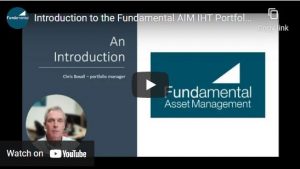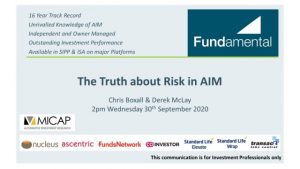Despite their obvious appeal and relevance in our lives, many UK investors surprisingly have little direct exposure in their portfolios to leading US technology groups, preferring instead to invest via a collective investment scheme.
We find it surprising that while much of the UK population is happy to use Amazon, Google, Apple iPhones etc, it isn’t interested in owning some of these fantastic companies. That’s why our general bespoke portfolios, as well as our new Ultimate Stocks portfolio, holds shares in the companies discussed below.
The significant outperformance of the US stock market over the UK over virtually any time period you care to mention, suggests that as reluctant investors in the US market, UK investors are at a distinct disadvantage and destined to underperform. The main UK market is also lagging AIM over recent periods, which isn’t surprising given AIM’s abundance of growth opportunities compared to the many dinosaurs roaming on the UK main market.
Our long term general portfolio holding Microsoft opened results season with its quarterly results last week, reporting 13% growth in sales to $38 billion and profits of $11.2 billion, both ahead of expectations. Having closed the June quarter with $136 billion of cash it certainly has plenty of resources at its disposal, with video app TikTok rumoured to be a potential acquisition target.
Despite the closure of its stores around the world, portfolio holding Apple’s revenues for 4th quarter rose 11% to $59.7bn, a new record and significantly exceeding forecasts of a 3% decline. With a growing portfolio of excellent products and an attractive services business, Apple continues to look in great shape buoyed by a huge cash pile.
Google’s holding company Alphabet was the only one of the big tech titans to report declining numbers, although even these were better than revised expectations as many feared a more significant Covid related decline in advertising revenue.
The Ultimate Stocks portfolio, launched in conjunction with our associates Investors Champion, offers a simple and transparent route for UK investors to gain exposure to these and many other exciting companies.
Moving away from the US, it is great to be able to report positive news from plenty of our AIM holdings, many of whose services and products we also use and come across in our daily lives.
Jarvis Securities, the provider of stockbroking and financial administration services, recently issued fantastic interim results supporting a material increase in its dividend. Jarvis’ “Model B” outsourced arrangement is a great solution for small investment management firms and Fundamental is a client.
Gamma Communications, a provider of communications services to business markets in the UK and Europe, issued a very positive trading update with management now anticipating that full year will be ahead of estimates. With 93% of revenue recurring GAMA is in great shape and well-placed to continue to thrive. Fundamental uses Gamma’s horizon telephone system.
dotdigital, the leading ‘SaaS’ provider of marketing automation confirmed that the pandemic had a minimal impact. Having proved itself in the toughest of markets and with continuing momentum online supported by some fantastic partnerships, dotDigital appears to have an exciting future ahead. While we aren’t currently a client, we have always been impressed with its dotmailer email offering.
Satellite holding Property Franchise Group confirmed a strong performance across the half year as well as a return to growth in the final month of the period which has continued into July. EweMove, its hybrid online/physical sales and lettings brand, set new records for sales listings in June. Those considering a house move should considering using Ewemove.
CVS Group, one of the UK’s leading providers of veterinary services, provided a comprehensive assessment of business over the past few months. The soaring demand for pets over lockdown could offer a big post Covid-19 boost to CVS and the veterinary sector as a whole, and the difficulties experienced by small independent practices may also see an acceleration of the consolidation which could also benefit CVS. The market was clearly impressed, sending the shares up sharply.
Quartix, the supplier of vehicle tracking systems, announced impressive interim results highlighting the attraction of its long-term subscription-based model.
IG Design Group, one of the world’s leading designers and manufacturers of gift packaging, celebrations, stationery and Christmas crackers, reassured with its full year results. As a business serving over 210,000 stores for over 11,000 customers in over 80 countries, IG has a better picture than most of the market environment.
Commercial flooring manufacturer James Halstead’s primary concern was cash flow when the world went into lockdown. With trading conditions improving and the cash position robust they feel able to commit to a second interim dividend. All of us are likely to have walked on James Halstead’s Polyflor flooring at some time in our lives!
Smart Metering Systems, which installs and manages smart meters and carbon reduction assets, chose the perfect time to sell a portfolio of meter assets prior to the pandemic disrupting things. Its latest trading update confirmed that revenue and underlying profit would in line with expectations, reflecting the resilient nature of its business model and index linked recurring revenue.
Moving away from AIM, general portfolio holding Games Workshop, the fantasy games group which is also a constituent of the Ultimate Stocks portfolio, issued excellent results, despite the pandemic shutting down its business for 6 weeks. The extensive results statement is worth a read to gain a full understanding of this unusual high-performing business. The shares moved back to all-time highs and despite the valuation there could be plenty of growth potential in overseas markets.
You can find out more about Fundamental Asset Management’s high performing AIM portfolio service, which has been delivering exceptional investment returns for more than 16 years, from the link here.
Fundamental portfolios hold shares in Alphabet, Apple and Microsoft. For a full assessment of results from all the big technology groups please visit or associated Investor’s Champion site. Fundamental clients get free subscriber access to all premium content.




